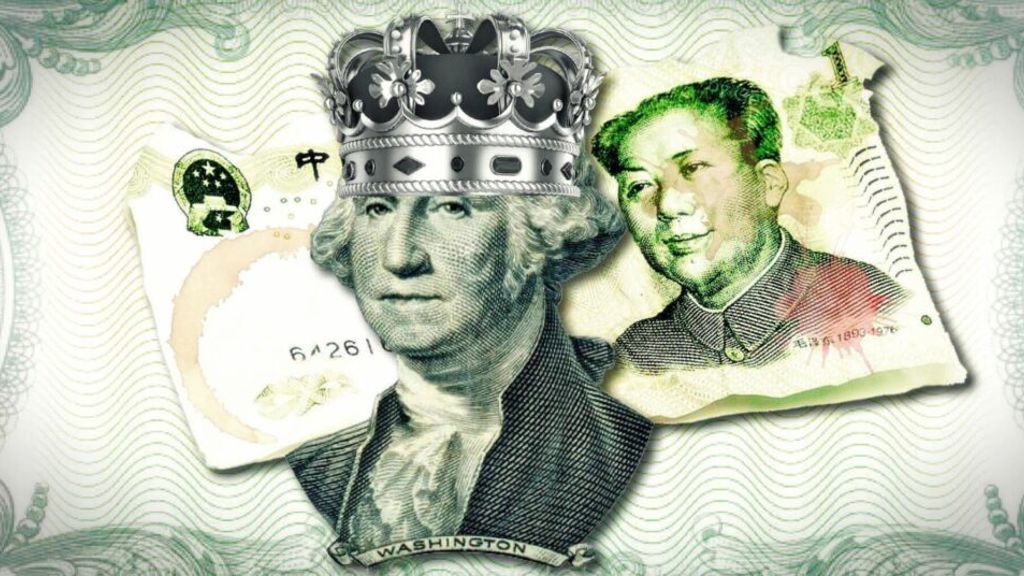The U.S. dollar will someday lose its status as the global reserve currency, but it is delusional to think that this will happen on a timescale short enough to affect domestic politics.
Those who anticipate a collapse of the dollar often subscribe to an “imperial” theory of currency zones. They argue that the U.S. dollar is held by other countries because the U.S. military implicitly (and perhaps occasionally explicitly) threatens foreign banks or governments: “If you don’t use our currency, we will give you the Qaddafi treatment.” The people who hold this view essentially believe that military power underlies U.S. dollar (USD) hegemony and that our allegedly deteriorating military capabilities and recent losses portend a wider depreciation of the dollar.
As the conflict in Ukraine suggests, this view is obviously false on a short time horizon. First, the premise is probably false: the U.S. remains the world’s preeminent military hyperpower. Russia cannot project power more than a few hundred kilometers outside of its borders. China’s ongoing demographic crisis rules out a military reconquest of Taiwan in the foreseeable future. Second, for the sake of argument, let us concede that the U.S. military capacity is on a relative decline: the dollar has continued to rise relative to the Euro and the Chinese renminbi even after the U.S.’s ignominious withdrawal from Afghanistan. The U.S.’s attempts to remake the Middle East are a clear signal of imperial insanity if ever there was one, but the USD has continued to appreciate against its competitor currencies. But how does this argument hold up when projected into the longer time horizon, to, say, 2030 or 2050?
If history is any guide, a country can continue to maintain its status as the global reserve currency long after its economic and military power has diminished relative to peer nations. Consider the previous global reserve currency, the U.K.’s gold-backed pound sterling. Even as the U.K.’s relative economic and military power declined, it took World War II and a complete restructuring of the financial system (orchestrated by the U.S.) to displace the pound as the top foreign currency holding. This historical perspective seems to suggest an alternative perspective to the “imperial view” described above. The more likely possibility is that foreign nations do not hold dollars principally due to some immediate or implicit threat of military force, but simply because it is most convenient to hold dollars. It is convenient to hold dollars, in turn, because they can be used for a variety of international financial and trading activities, because most countries held dollars yesterday, and are expected to do so tomorrow, especially when the alternative is holding crappier local non-USD currencies.
By Jeremiah Jackson, Ph.D.









